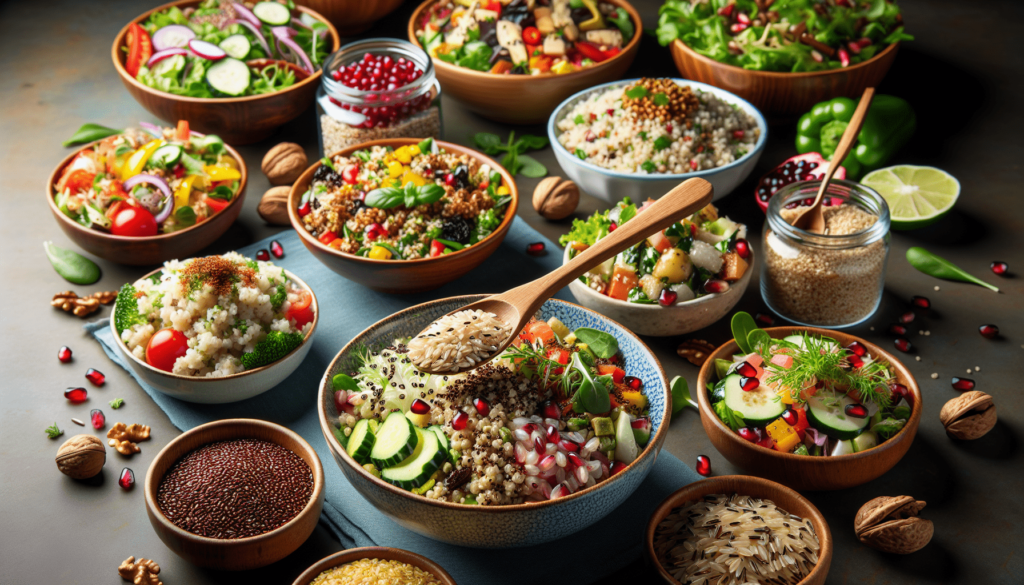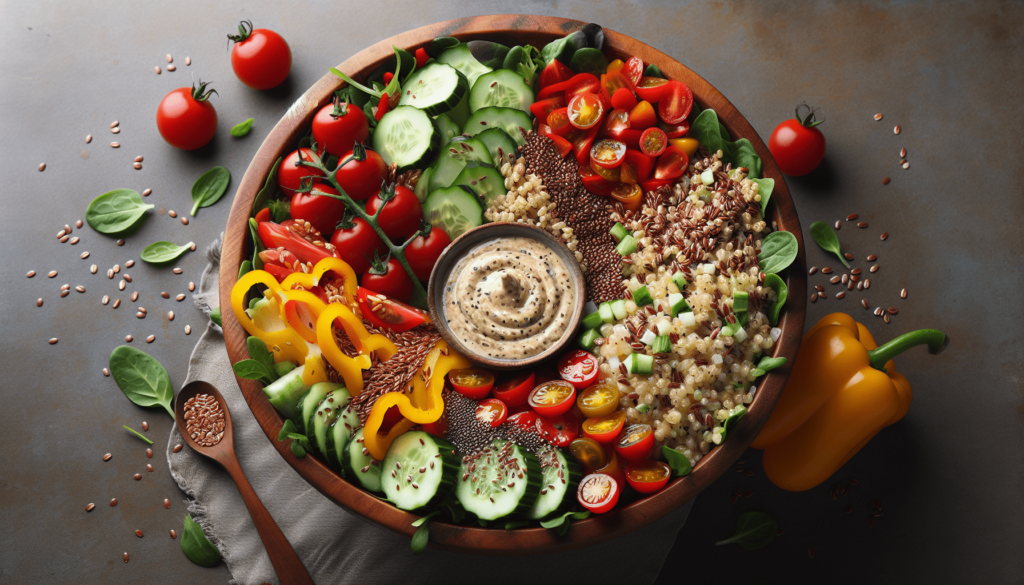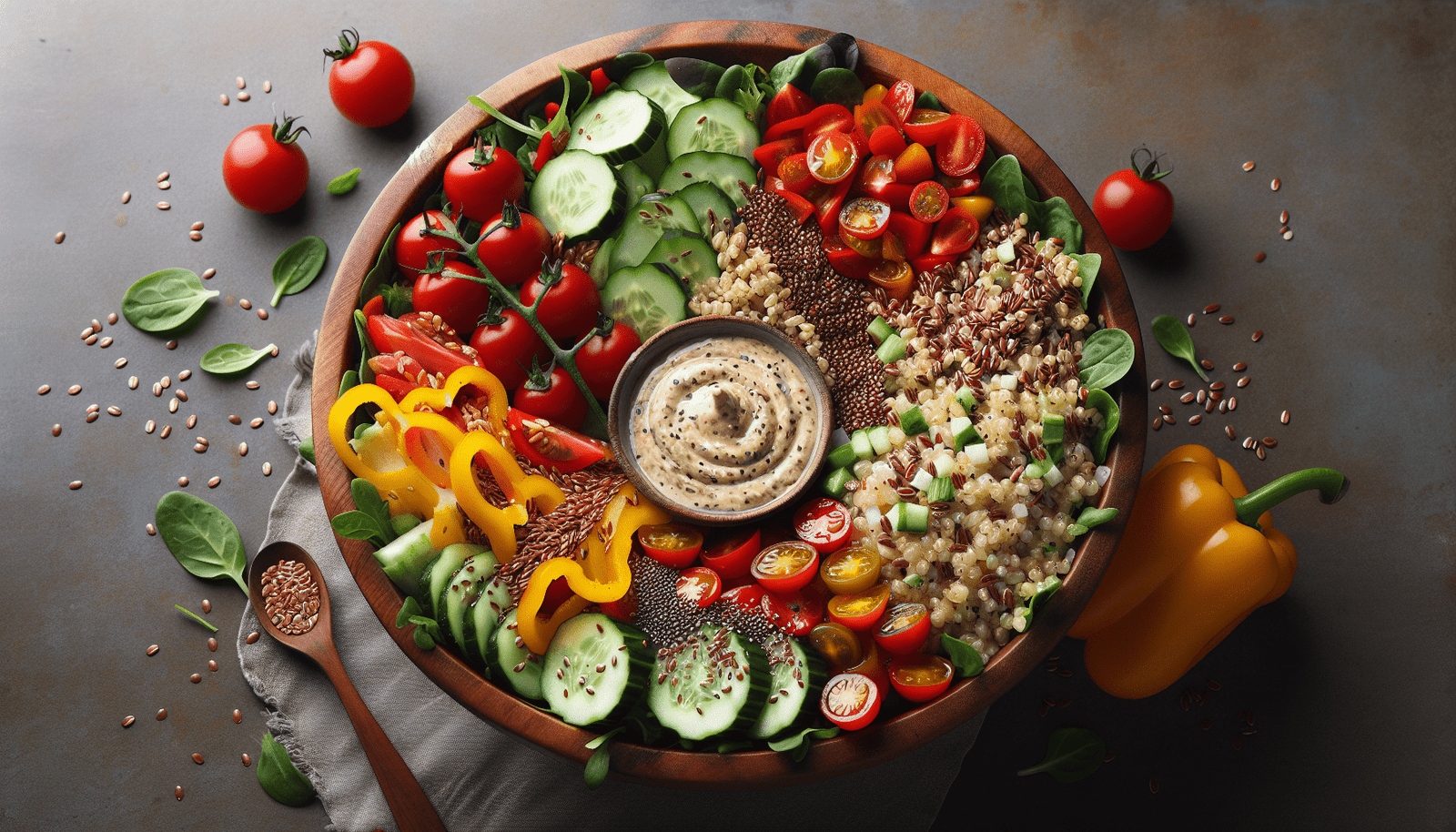When it comes to creating a delicious and nutritious salad, the right choice of grains can make all the difference. With a wide variety of grains available, each offering its own unique flavors and textures, it can be challenging to know which ones work best in a salad. In this article, we will explore the top grains that are perfect for salads, bringing a delightful crunch, a satisfying chew, and an explosion of flavors to elevate your salad game. Whether you’re looking for a hearty base or a delightful topping, these grains are sure to please your taste buds and keep you feeling satisfied.
Quinoa
Quinoa is an incredibly versatile grain and a fantastic addition to any salad. One of the key benefits of quinoa is its high protein content. Unlike most grains, quinoa is a complete protein, meaning it contains all nine essential amino acids that your body needs. This makes it an excellent choice for those following a vegetarian or vegan diet, as it can provide the necessary protein intake. Quinoa is also rich in fiber, which aids in digestion and helps to keep you feeling full and satisfied for longer periods. Additionally, quinoa is gluten-free, making it suitable for individuals with gluten sensitivities or celiac disease. Its mild, nutty flavor pairs well with various salad ingredients, adding a delicious taste to your dish.
Bulgur
Bulgur is a popular grain that adds both nutrition and texture to salads. One of the standout features of bulgur is its quick cooking time, making it a convenient choice for those short on time. Despite its rapid cooking process, bulgur packs a punch when it comes to nutritional value. It boasts a high fiber content, which aids in digestion and supports healthy gut function. Additionally, bulgur is an excellent source of protein, making it a great option for those looking to incorporate more plant-based proteins into their diet. Another advantage of bulgur is its low fat and calorie content, making it a weight-friendly choice. When added to salads, bulgur provides a chewy texture that adds interest and depth to your dish.

Farro
Farro is an ancient whole grain that has gained popularity in recent years due to its numerous health benefits. Similar to other grains, farro is high in fiber and protein, helping to promote satiety and support healthy digestion. It also contains essential vitamins and minerals, including magnesium and zinc, which are important for various bodily processes. One of the standout qualities of farro is its nutty flavor, which can enhance the taste of any salad it’s added to. Additionally, farro adds substance and heartiness to salads, making them more satisfying and substantial.
Couscous
Couscous is a staple grain in many cuisines and is an excellent choice for salads. One of the key advantages of couscous is its easy and quick preparation time. It can be ready in just a matter of minutes, making it a convenient option for those looking for a speedy meal. With its mild flavor, couscous easily complements a variety of ingredients in salads, allowing you to get creative with flavors and textures. Couscous provides a light and fluffy texture to salads and can be used as a base or mixed in for added volume and interest.

Barley
Barley is a versatile and nutritious grain that makes a fantastic addition to salads. It is a good source of fiber, which aids in digestion and helps to keep you feeling fuller for longer periods. Barley is also rich in vitamins and minerals, including selenium and niacin, which play essential roles in maintaining a healthy body. When incorporated into salads, barley adds a satisfying chewiness, creating a delightful texture contrast with other ingredients. Its neutral taste allows it to blend well with various flavors, making it a versatile choice.
Brown Rice
Brown rice is a whole grain that is packed with nutrition, making it an excellent choice for salads. Unlike white rice, brown rice retains its outer bran layer, which is rich in fiber and minerals. This means that it provides more nutritional value and promotes better digestion compared to its refined counterpart. Brown rice adds a hearty and nutty flavor to salads, giving them a satisfying taste. It also provides a pleasant texture that can elevate any salad recipe.
Millet
Millet is often overlooked but deserves a place on your salad plate. Not only is it a gluten-free grain, making it suitable for individuals with gluten sensitivities or celiac disease, but it is also rich in antioxidants. These powerful compounds help to protect your body against harmful free radicals and promote overall health. Millet adds a light and fluffy texture to salads, making them more enjoyable to eat. It also contributes a slightly sweet and nutty flavor, enhancing the taste of your salad creation.
Wheat Berries
Wheat berries are whole wheat kernels that offer a range of nutritional benefits. They are full of fiber and protein, making them a satisfying addition to salads. The fiber content aids in digestion and helps maintain a healthy gut, while the protein contributes to muscle repair and growth. Wheat berries are also rich in vitamins and minerals, such as iron and B vitamins, which support various bodily functions. Their chewy texture adds interest to salads, providing a delightful contrast with other ingredients. Additionally, wheat berries have a subtle nutty flavor that can enhance the overall taste of your salad.
Freekeh
Freekeh is a nutritious grain made from green durum wheat that has been roasted and cracked. It is not as widely known as other grains but offers numerous health benefits. Freekeh is high in protein and fiber, making it a satisfying and filling addition to salads. It also contains essential minerals like calcium and iron, which are important for bone health and oxygen transport in the body. When added to salads, freekeh lends a smoky and nutty flavor, creating a unique and delicious taste profile.
Amaranth
Amaranth is a gluten-free grain that is gaining popularity in the culinary world. It is high in both protein and fiber, making it a nutritious choice for salads. The protein content is particularly notable, as it contains all the essential amino acids that your body needs. Amaranth is also rich in minerals like manganese and phosphorus, which contribute to various aspects of your health, including bone strength and energy production. When added to salads, amaranth provides a unique texture that is slightly crunchy, adding a delightful element to your dish. It also has a slightly peppery flavor, which can enhance the overall taste profile of your salad.
In conclusion, grains are a fantastic addition to salads, offering a range of nutritional benefits and adding depth of flavor and texture. Whether you opt for quinoa’s high protein content, bulgur’s quick cooking time, or farro’s nutty flavor, these grains can elevate any salad recipe. From the easy preparation of couscous to the satisfying chewiness of barley, there is a grain to suit every taste and preference. So, the next time you’re whipping up a salad, don’t forget to incorporate one of these fantastic grains and enjoy the benefits they bring to your meal. Happy salad-making!


